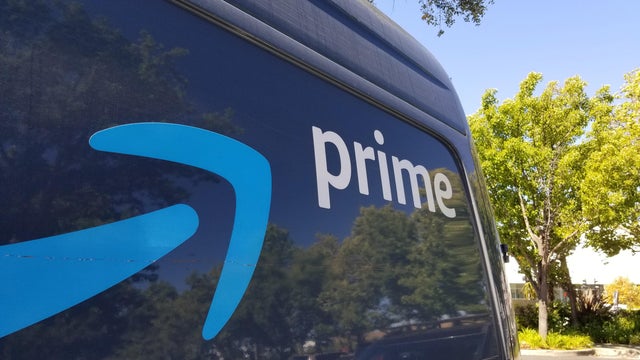Avoid these scams on Amazon Prime Day this week

With Amazon Prime Day kicking off Tuesday, experts are warning consumers to beware of scams targeting bargain-hunting shoppers.
Fraudsters will employ a number of deceptive tactics, including "phishing" emails and fake websites, social media posts and text messages to trick customers into sharing their personal information, according to the Better Business Bureau.
"More deals are great for consumers, and more people out shopping is great for businesses large and small," the group said in its Prime Day warning to customers. "Just be careful, and don't get so caught up in the excitement that you fall for phishing scams, misleading advertisements and lookalike websites."
A phishing scam happens when a fraudster sends an email or text message to a customer about, for example, a delay in shipping a purchase on Amazon or other e-commerce platform. Such messages will typically include a link where the customer is encouraged to provide account details.
Never click on a link that you're not 100% confident comes from Amazon, the experts said. Keeping track of what has been ordered and when it's expected to arrive can also help customers avoid becoming a victim, the BBB said.
"Maybe set up a database with order numbers, tracking numbers [and[ how it's coming to you," Melanie McGovern, a BBB spokeswoman, told CBS affiliate WHIO. "Just so you know if you do get a text message or you get an email saying there's a shipping delay or there's an issue, you can just refer to that spreadsheet."
Phishing attempts also can be made via text message, with scammers often falsely telling customers that they've won a free gift and inviting them to fill out a form to claim the prize.
Most phishing strategies aimed at Amazon customers prey on their misunderstanding of how the retailer communicates with individual consumers, experts said. A company representative is unlikely ever to contact a shopper directly and ask about order details, Scott Knapp, Amazon's director of worldwide buyer risk prevention, told CBS affiliate WNCN.
"There's the message center, which will tell you if we're trying to get in touch with you or if it's trying to confirm an order, you can go right to the My Orders page," Knapp said.
Cybercriminals also sometimes create web pages that look like Amazon.com in order to lure customers into placing orders on the dummy site. Indeed, fraudsters try to mimic an Amazon page more than any other business website, according to the Federal Trade Commission. Amazon helped delete more than 20,000 fake websites last year, Knapp told WNCN.
The simplest way to spot a dummy site is to look for spelling or grammatical errors in the URL or somewhere on the page, the BBB said. Customers are encouraged to report fraudulent websites to the FTC at reportfraud.ftc.gov or on Amazon's customer service website.
Prime Day this year officially launches at 3 a.m. on Tuesday and will end 48 hours later. Analysts with Bank of America Securities estimate the two-day promotion, which Amazon launched in 2015, could generate nearly $12 in merchandise sales.
"With consumers looking for deals, more merchant participation, faster deliveries and steep discounts, we expect a relatively strong Prime Day, with potential for upside to our 12% growth estimate vs. Prime Day last July," they said in a report on Monday.
Khristopher J. Brooks is a reporter for CBS MoneyWatch covering business, consumer and financial stories that range from economic inequality and housing issues to bankruptcies and the business of sports.
source: https://www.cbsnews.com/news/amazon-prime-day-july-2023-scams/